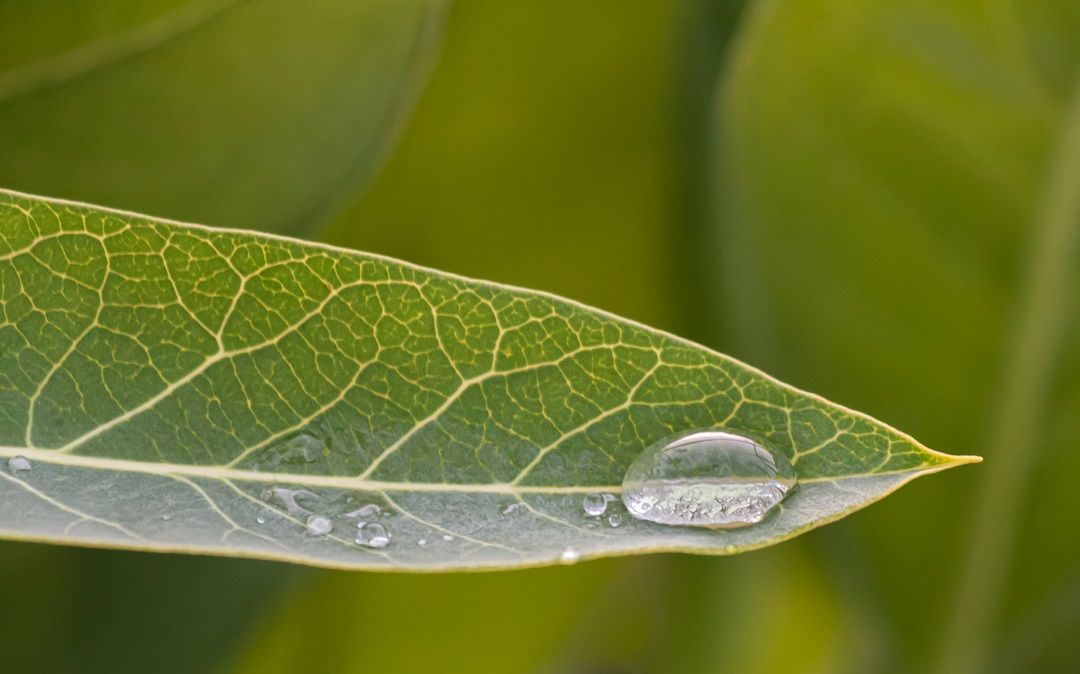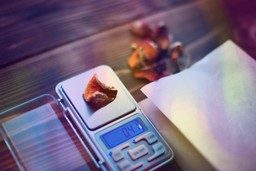The buzz around microdosing is largely consistent, with anecdotal support for its use in treating many different conditions. Is microdosing helpful for treating depression? Does it outperform conventional treatments? How does it compare to “macro dose” treatment? Join Dr. Erica Zelfand as we explore these questions around healing depression through psychedelics.
LSD Microdosing for Depression
Matias’s appointment fell on Valentine’s Day that year. During the visit, he stared at the wall behind my head and admitted he had been having “those thoughts” again. That is to say, our code for suicidal ideation.
Matias had tried many things to get relief from his major depressive disorder (MDD). This included too many pharmaceutical antidepressants to list here, a couple of anti-psychotic medications, a beta blocker, an intensive outpatient program (IOP) at the local hospital, and weekly therapy. The medications made him feel “foggy” more than calm. Nor did they do much to change his PHQ-9 depression scores. Meanwhile, it didn’t help that today was a holiday that celebrated romantic, partnered love. Thus highlighting Matias’ single status. Matias felt at the end of his rope.
Just a few days later, however, Matias sent me this message: “This is the best I have felt in months. Could one drop really have such an effect?” He went on to explain that at the suggestion of a friend, he had taken a microdose of LSD. A 10 microgram dose to be precise.
So, Matias isn’t the only person who has turned to microdosing in the hope of getting relief from a mood disorder. A 2018 study [1] of 1,102 people who had microdosed found that 40% of them did it specifically to try and improve their mental health. A 2020 survey [2] found that 44% of those microdosing psilocybin or LSD for mental health reasons reported their mental health was much better. (Twenty-one percent of these individuals started microdosing to help their depression, and 7% were doing it for anxiety).
Microdosing for Depression Self-Reported Success
Most of the studies on microdosing are based on surveys completed online by individuals who have tried microdosing themselves. While this method of research is by no means the scientific gold standard of the double-blind, controlled, randomized trial we like to see in drug research, it still allows us to understand people’s motivations for trying microdosing and their perceived results.
Nonetheless, based on these self-report studies, many people who try microdosing say they notice significant improvements in their mood [3] with reports of less perceived depression, lower stress levels, decreased trauma triggering, and improved energy and focus [4],[5],[6].
While we cannot say for certain that microdosing helps with depression, the data currently available certainly implies that low doses of psilocybin and LSD may indeed help in some cases.
Does Microdosing Work Better Than Conventional Prescription Antidepressants?
But is microdosing as effective as conventional pharmaceutical antidepressant drugs like fluoxetine (Prozac) in the treatment of mental health disorders? Yes – according to one small 2019 study [7]. In this study, individuals aged 18 and up completed an online questionnaire focusing on mental health and answered questions about the various treatments they’d tried in the past and how well (or poorly) they worked.
Of the people who completed the questionnaire, 7.2% (or 410 individuals) had a diagnosis or one or more mental health and/or physiological disorders*. (*A physiological disorder is an illness that interferes with the normal, healthy functions of the body. Examples of physiological conditions include diabetes, asthma, Parkinson’s, cancer, and rheumatoid arthritis.) Their responses showed a clear pattern: these people felt that microdosing had worked significantly better than conventional prescription medications for a variety of health conditions, including depression, ADD/ADHD, and anxiety disorders.
In the case of Matias, a number of his friends had told him that they didn’t think his prescription medications were helping. They gently told him that he didn’t seem any happier or functional. He seemed “flat and spacey,” on the other hand, and suggested he mention it to his prescriber. After two weeks of microdosing, however, Matias felt energetic enough to meet up with these same friends for a picnic. During the meal, his best friend commented that Matias seemed better that day. “I’ve been trying microdosing,” Matias confessed. “It’s working, bro, keep going,” his friend replied, “I feel like I’m catching a glimpse of the Matias I used to know, of the guy you were before.”
An Unexpected Microdosing Perk
Another perk of microdosing is that it seems to combine safely with most other psychiatric medications – meaning that individuals do not have to stop their antidepressant or anxiolytic medications before they give microdosing a try (the one possible exception being lithium) [8]. Furthermore, people often report that after a few months of microdosing, they are able to easily taper down to lower doses of their pharmaceutical antidepressant and anxiolytic medications – or wean off them entirely.
That’s exactly what happened with Matias. He gradually weaned off of all psychiatric prescription medications within a few months of starting microdosing (with the support of his prescriber). So now he’s grateful to be free of those pesky side effects and the plastic pill organizer that used to sit on his kitchen counter.
Does Microdosing Work Better Than Larger Psychedelic Doses?
How does microdosing psychedelics measure up against taking higher, trip-inducing macrodoses of psilocybin or LSD? Again, the answer is not yet clear, but according to the reports of 410 people analyzed in a 2019 survey,[9] it depends on the condition. Microdosing and macrodosing seem to work about as well in treating physiological disorders (physical ailments).
When it comes to psychological conditions, however, people reported that macrodosing helped them more significantly than microdosing. Most importantly, this may be on account of the mystical experience element seen with psychedelic trips that is absent in the microdosing experience. In controlled clinical trials of depression, the degree of the mystical experience was related to depression symptom improvement.
After microdosing for a few months, Matias took a break. Then he noticed that after about 10 days he started “slipping” back into some of his old, dark ways of thinking – and his PHQ-9 depression scores reflected this. He joined his friends for a day on the beach, during which time the group ate psilocybin-containing mushrooms. Matias tells me that his trip on 3 grams of dried fungus that day was both challenging and beautiful. Moreover, he described the experience as “spiritual.” Whereas Matias used to constantly think about suicide, he reports that since his trip, “I think about it sometimes, but then I’m like, ‘Nah, no way am I actually gonna do that.’”
Microdosing for Depression in Summary
There is a lot we do not know about microdosing psychedelics. The little we do know comes mainly from people’s reports about their subjective experiences. Based on that limited information, it seems that microdoses of psilocybin and LSD:
- Can likely be taken concurrently with conventional pharmaceutical antidepressants (with the potential exception of lithium);
- May help people gradually taper down their use of conventional medications;
- Maybe more effective than conventional pharmaceuticals in the treatment of depression, anxiety, ADD/ADHD, and other conditions;
- May work just as well as psychedelic macrodoses in the treatment of physiological conditions; and
- Might not be quite as effective as macrodoses (psychedelic trips with mystical experiences) in the treatment of psychological conditions like depression.
As always, it’s important to weigh the risks and benefits of any new medical intervention – especially one that has yet to undergo rigorous controlled studies. However, based on these initial findings, we are seeing an upsurge in studies being planned to evaluate microdosing for mood disorders.
Follow your Curiosity
Sign up to receive our free psychedelic courses, 45 page eBook, and special offers delivered to your inbox.References
- Lea T, Amada N, Jungaberle H, Schecke H, Klein M. Microdosing psychedelics: Motivations, subjective effects and harm reduction. Int J Drug Policy. 2020 Jan;75:102600. PMID: 31778967. doi: 10.1016/j.drugpo.2019.11.008.
- Lea T, Amada N, Jungaberle H, Schecke H, Scherbaum N, Klein M. Perceived outcomes of psychedelic microdosing as self-managed therapies for mental and substance use disorders. Psychopharmacology (Berl). 2020 May;237(5):1521-1532. PMID: 32043165. doi: 10.1007/s00213-020-05477-0.
- Image From: Anderson T, Petranker R, Christopher A, Rosenbaum D, Weissman C, Dinh-Williams L-A, Hui K, Hapke E. Psychedelic microdosing benefits and challenges: an empirical codebook. Harm Reduct J. 2019 Jul 10;16(1):43. PMID: 31288862. doi: 10.1186/s12954-019-0308-4
- Anderson T, Petranker R, Rosenbaum D, Weissman CR, Dinh-Williams L-A, Hui K, Hapke E, Farb NAS. Microdosing psychedelics: Personality, mental health, and creativity differences in microdosers. Psychopharmacology. 2019;236(2):731–740. https://doi.org/10.1007/s00213-018-5106-2
- Polito V, Stevenson RJ. A systematic study of microdosing psychedelics. PLOS ONE. 2019;14(2):e0211023. https://doi.org/10.1371/journal.pone.0211023
- Fadiman J, Korb S. Might Microdosing Psychedelics Be Safe and Beneficial? An Initial Exploration. J Psychoactive Drugs. 2019 Apr-Jun;51(2):118-122. doi: 10.1080/02791072.2019.1593561.
- Hutten NPRW, Mason NL, Dolder PC, Kuypers KPC. Self-Rated Effectiveness of Microdosing With Psychedelics for Mental and Physical Health Problems Among Microdosers. Front Psychiatry. 2019 Sep 13;10:672. PMID: 31572246. doi: 10.3389/fpsyt.2019.00672.
- Microdosing Psychedelics [Website]. Accessed February 10, 2021. Available at: https://sites.google.com/view/microdosingpsychedelics/drugs-and-supplements?authuser=0
- Hutten NPRW, Mason NL, Dolder PC, Kuypers KPC. Self-Rated Effectiveness of Microdosing With Psychedelics for Mental and Physical Health Problems Among Microdosers. Front Psychiatry. 2019 Sep 13;10:672. PMID: 31572246. doi: 10.3389/fpsyt.2019.00672.







